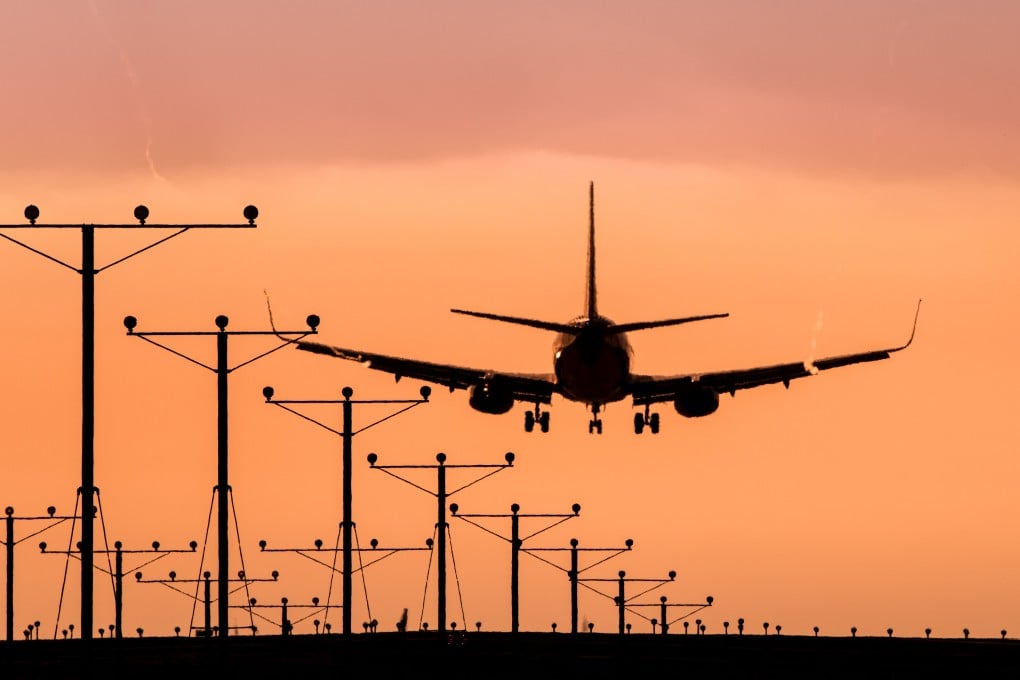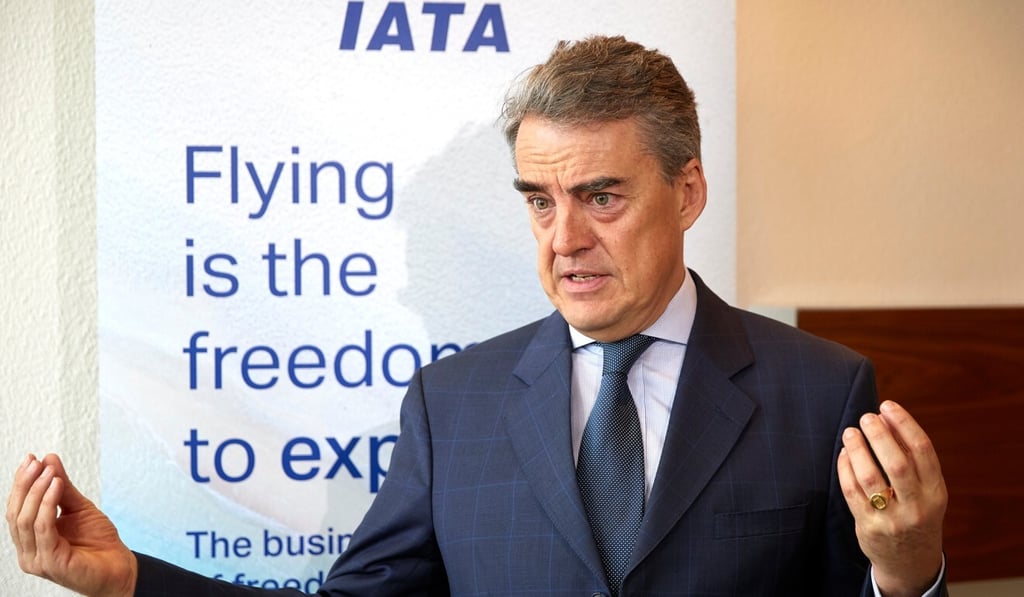Exclusive | Aviation industry group is ‘rethinking’ its emissions pledge, pushing for even greener goals, outgoing chief says
- International Air Transport Association head Alexandre de Juniac says industry needs to look at achieving carbon neutrality in exclusive exit interview with the Post
- ‘We have to reach that through all the possible instruments … and ask the governments to help us,’ departing chief says

The departing head of 290-member association, which represents the majority of global air traffic, hinted at a new industry target for carbon neutrality after the successful implementation of a cap on emissions through a so-called carbon offsetting and reduction scheme for international aviation, or CORSIA.

De Juniac said a “very strong rethink” of IATA’s environment policy was under way amid increased public and political pressure, but would be completed by his successor following his departure from the industry group’s top job at the end of the month after 4½ years at the helm.
“I think that what we need to think about is carbon neutrality somewhere in the long term as a target for the industry,” de Juniac said. “We have to reach that through all the possible instruments, such as … technology and sustainable fuels, which we should invest in a lot, and ask the governments to help us.”